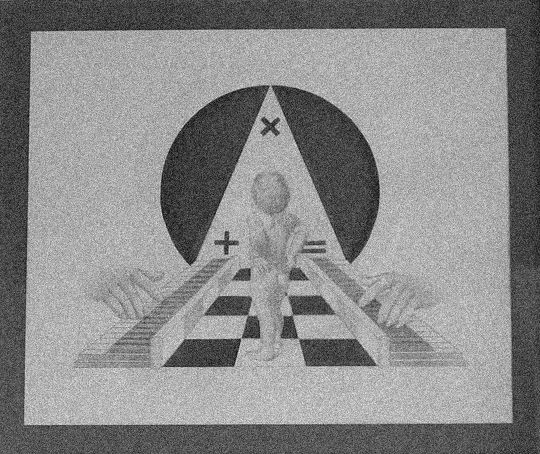Alienation as EBP
Evidence-Based Psychotherapy reifies neoliberal subjectivities, rendering psychotherapy complicit with efforts to manage the poor by rationalizing inequality and privatizing responsibility.

We are told evidence-based psychotherapy (EBP) is the culmination of a shift away from risky, ineffective practices grounded in untested assumptions to those that provide safe, helpful assistance. In this narrative, EBP encompasses psychotherapies whose effectiveness has been proven by science. In reality EBP refers to short-term, manualized, symptom-focused treatments, many of which fall under the school of cognitive behavioral therapy (CBT). Therapies that do not have time limits, encourage free-flowing exploration, and have other qualities typically associated with a psychoanalytic or psychodynamic approach are rarely portrayed as evidence-based. This is the case even though a large and growing body of scientific evidence speaks to the ability of this approach to effectuate valuable clinical improvement.
The emphasis of EBP practices on timeliness and efficiency curiously overlaps with the economic agendas of the resource-strapped community mental health systems where EBP is prevalent, and of the insurance and pharmaceutical companies that profit from its implementation. It is not enough, however, to say simply that EBP is a political charade of neoliberal capitalism. EBP is a manifestation of the need to address and ameliorate capitalist alienation that reinforces the conditions that give it rise.
At a training on CBT as a means to treat depression that I attended, the instructor explained that at the conclusion of treatment, “the patient demonstrates mastery of CBT skills. He is able to be his own therapist. He is ready to take responsibility for his mental health.”
CBT, asserted by some to be the “gold standard” of EBP, enshrines the therapist as a teacher whose role is to provide patients with skills and make them responsible for implementing those skills so that, in a matter of months, they can be their own therapists. Use or nonuse of skills is a measure of a patient’s motivation to change and his or her willingness to assume responsibility for emotional distress. Within this paradigm, we see relational dynamics common to capitalist life and the assumption that these dynamics are integral to scientific efforts to improve emotional well-being.
A patient who continues to feel symptomatic after his or her sixteen sessions of CBT have passed will likely be asked, “Well, have you been using your skills?” Particularly for poor people, who are familiar with seeking services from welfare offices or other such institutions, the relational dynamics of EBP are quite familiar. Applying for food stamps and being assessed by an EBP practitioner, for instance, bear many similarities. In each case, the food stamp client/EBP patient engages with an authority figure who assesses their eligibility, provides skills about how to access relief, and, finally, assumes the role of monitoring the client’s/patient’s compliance with making use of the requested relief. Similarly, in both scenarios, should the relief be inadequate or lost, responsibility for that development is seen as due to a behavioral deficit resulting from a conscious choice on the part of the client/patient.
These relational dynamics speak to the way in which EBP adheres to the neoliberal belief that human relationships are not ends in and of themselves, but simply means to an end. EBP thus reduces the rapport between patient and therapist to an exchange between two rational actors, one seeking and the other providing, joined together by their common connection to a consumable product (“skills”) that is external and alien to them. The connection they make, devoid in its fundamentals of anything uniquely theirs, might be thought of as resulting in a therapy more akin to painting-by-numbers than creating an original work of art.
We might say, then, that EBP forecloses traditional notions about psychotherapy as a cooperative effort between two people engaged in the exploration of a patient’s subjective experience of being human. It envisions psychotherapy as a labor transaction made more effective by placing limits on the very things that make the connection between patient and therapist a unique experience. As such EBP manages to claim to improve emotional life while promoting the sort of interpersonal alienation associated with other domains of capitalist life.
At the aforementioned CBT training, a participant asked the instructor how to respond if a patient expresses a desire to talk about issues that he feels are important but which the treatment manual does not address. The instructor suggested that if all other attempts to get the patient to give up on this request fail, “You could tell him you’ll set aside the first ten minutes of each session for him to just talk, but in that case you’ll have ten minutes less for the therapy.”
EBP’s emphasis on non-living systems (measurement and numbers) over biophilic ones (human development and subjectivity) does not just undermine human relatedness by way of the relational dynamics it prescribes for patients and therapists. Its marginalization of spontaneity and creativity outside predetermined boundaries also alienates patients from authentic connection to themselves. Rather than seek a deeper connection to ourselves and our minds, we are told that relief is to be found by disregarding the truths derived from our lived experience in favor of the truths of what Erich Fromm calls “anonymous authority.”
EBP thus claims to represent a solution to emotional dilemmas while at the same time devaluing the therapeutic search for the truths of subjective experience. As is the case in other areas of neoliberal society, EBP proposes an approach that envisions people as automatons seeking confirmation and validation not through meaningful connection to an imperfect human process but through submission to a proven, assembly-line approach.
The effects of EBP thus might be seen as similar to what has been observed in other privatized, neoliberal settings, such as the homeless services industry. There, clients have been documented as engaging in a responsibilization narrative, or an inner discourse that leads them not to view themselves as socially constructed but as possessing personal deficits (“lack of motivation”) that explain their current predicament, which is viewed as devoid of historicity or symbolism. Similarly, in EBP patients are tasked, in a manner forcefully decontextualized from structural conditions, with compensating for internal deficits by accepting truths assumed to be more accurate and powerful than anything that might naturally exist in their own minds. From the materialist perspective, then, EBP is a form of psychological care that replicates the conditions and assumptions of the very society patients have experienced as offering little more than hardship, insecurity, indignity, and pain.
■
Scott Graybow, PhD, LCSW is the editor of Progressive Psychoanalysis as a Social Justice Movement (Cambridge Scholars Publishing, 2017).



